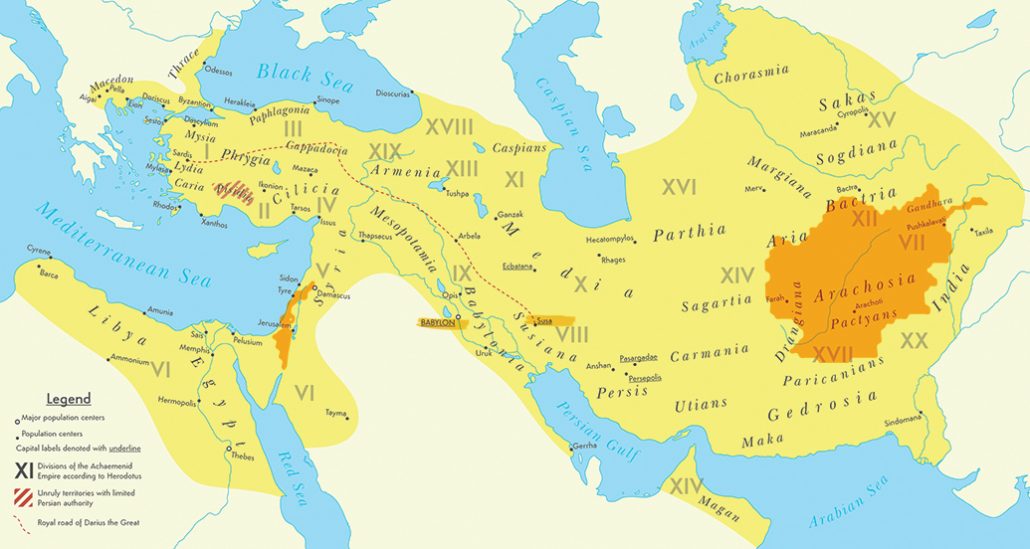Dear praying friends,
Yeshua tells us in the book of Mathew 24:6 that, “… you will hear of wars and rumours of wars. See that you are not alarmed, for this must take place.”
Only a few months ago the US and Allied forces pulled out of Afghanistan after the longest war in US history. Now Russia has invaded Ukraine and we see innocent people plunged into a war that most do not want.
In this newsletter we are launching an emergency relief appeal for the people of Ukraine. It’s too early to know what will happen in Russia/Ukraine but we can try to help alleviate some of the suffering through donations and focussed prayer.
The lead article of this newsletter reflects on Afghanistan for some historical and biblical perspectives including the overcoming of the Jewish people and their redemption from near destruction in the Story of Esther, which we celebrate on the festival of Purim.
The withdrawal of Allied troops from Afghanistan last year brought conflicts to the surface that surprised most of us! We thought we had made more progress in our relationship with the Afghan people, but to our disappointment, we had not. Tribalism, radical Islam, and anti-Western sympathies were boiling below the surface of this nation of almost forty million people. The Taliban was waiting patiently for the United States and Allied forces to leave to make their next move and take over the country, which is similar to what happened in Iran some years previously. We once again learned not to underestimate the power of radical Islam over its adherents. Indeed, the only force powerful enough to break the hold of fierce Islamist belief and nationalism is the gospel.
Afghanistan in the Bible
People often ask if the United States appears in the end times. I do not see any special mention in biblical prophecy. However, some of the more general statements about the absence of godliness in the last days and the events Yeshua predicted in the Olivet Discourse apply to all people – especially the moral and spiritual decline intensifying as we approach the Second Coming. I am sorry to say we see this in our own country. One would have to don blinders not to see how our world is once again embracing the lifestyles prevalent during the days of Noah, which God’s judgment ultimately submerged.
We can also ask this same question about Afghanistan. Is this nation mentioned in the Bible, and what does the future hold for Afghanistan according to the Scriptures? Regarding this topic, we have more to say than we do about our own country, as Afghanistan is mentioned most intriguingly in the Bible and is part of a critical story describing Israel’s survival.
Afghanistan was part of the Persian Empire from the sixth century to the fourth century BC, although the Bible does not use the proper name for the modern nation. However, you can quickly identify the geographic region when you understand the geography and alignment of countries in the ancient world.
For example, Daniel’s vision in Daniel 2:31–45 predicts the Babylonian and Medo-Persian domination of Israel, ultimately giving way to Greece and Rome: a prophecy detailed in chapters two, ten, and eleven. Eventually, all these powerful ancient kingdoms who were hostile to the Jewish people, along with one future pagan nation, will be crushed by the stone cut without hands as Daniel predicted:
In the days of those kings the God of heaven will set up a kingdom which will never be destroyed, and that kingdom will not be left for another people; it will crush and put an end to all these kingdoms, but it will itself endure forever. Inasmuch as you saw that a stone was cut out of the mountain without hands and that it crushed the iron, the bronze, the clay, the silver and the gold, the great God has made known to the king what will take place in the future; so the dream is true and its interpretation is trustworthy. (Daniel 2:44–45)
Ultimately, all human governments, including Persia and Afghanistan, are temporary and will fall in weakness and humility at the feet of the One and only true Creator and King!
Afghanistan and the Persian Empire
This month, we are thinking quite a bit about Persia as we observe the Jewish holiday of Purim that was initiated in the book of Esther. Most Bible students know that the Persian Empire played a significant role in the history of Israel and appears many times in the Hebrew Scriptures. Persia is mentioned 240 times in the Bible. The great Persian kings, including Cyrus, Darius, and Ahasuerus (Artaxerxes), are identified many times as well.[1]
However, what is not usually known is that the area comprising modern Afghanistan was part of the Persian Empire for centuries during a critical period of the biblical story. Though Iran and Afghanistan are two distinct and unique modern nations, a few remaining historical ties still unite both countries. For example, the Persian dialect of Dari is one of Afghanistan’s official languages. Also, many Afghan people speak Farsi and celebrate the Persian New Year.
The Achaemenid Persian Empire (550–330 BC)
The period when the region encompassing modern Afghanistan was part of the great Persian Empire spanned two hundred years: from the ascension of Cyrus the Great (Cyrus II) in 550 BC until Alexander the Great conquered Persia in 330 BC. After Alexander’s death, the conquered kingdoms of the Macedonian leader were divided into four sections.
Most ancient historians would agree with this statement by the Department of Ancient Near Eastern Art at The Metropolitan Museum of Art regarding the scope of Alexander’s Empire: “The Achaemenid Persian empire was the largest that the ancient world had seen, extending from Anatolia and Egypt across western Asia to northern India and Central Asia.”[2]
Cyrus, the “anointed ruler,” created a vast empire including Israel and Afghanistan. The prophet Isaiah predicted his rise to power almost 150 years before he became king: “Thus says the Lord to Cyrus His anointed, whom I have taken by the right hand, to subdue nations before him and to loose the loins of kings; to open doors before him so that gates will not be shut” (Isa 45:1).
Cyrus the Great played a critical role in restoring Jerusalem as Jeremiah predicted (Jer 25:11, 29:10), and Daniel confirmed (Dan 9:24–27). He gave Zerubbabel permission to return from exile and rebuild the Temple (2 Chronicles 36:20–23; Ezra 1:1–11; Isaiah 44:28; 45:1–7). This move was consistent with Cyrus’ view on ruling disparate cultures with varying religious beliefs. He allowed diversity, unlike other ancient rulers. The Lord used Cyrus’ philosophy of inclusion and cultural expression for the good of the Israelites, whom the Babylonians had conquered. The Babylonians also destroyed the Temple, took many Israelites into exile, and forced them to adopt Babylonian religious practices, as the book of Daniel describes.
Esther might be the most significant book of the Bible written during this period of the great Persian Empire.
In Esther 1:1, the author details the geographic expanse of Ahasuerus’ kingdom. “Now it took place in the days of Ahasuerus, the Ahasuerus who reigned from India to Ethiopia over 127 provinces.”
Ahasuerus was mentioned in Ezra 4:6 because he ruled during this period, “Now in the reign of Ahasuerus, in the beginning of his reign, they wrote an accusation against the inhabitants of Judah and Jerusalem.” The context is that Israel’s local enemies were trying to stop the rebuilding of the Temple and were antagonising Israel’s rebuilders from the reign of Cyrus until the reign of Darius (Ezra 4:4–5).
From the boundaries mentioned in Esther, the identification of Ahasuerus (thought to be Xerxes, 485–465 BC), and the extent of his kingdom, the events of the book of Esther took place during the reign of this Persian king. Therefore, the nation of modern Afghanistan was a part of the extended Persian Empire.
So, when we think about biblical Afghanistan, we should consider that whatever we read of Persia is also true of what is now Afghanistan. Unlike Isaiah’s specific prophecies regarding Assyria, Ethiopia, Egypt, Babylon (modern Iraq), Arabia, Edom, Philistia, the city of Damascus, and other identifiable nations or geographic areas, whatever the Bible tells us about Persia should include the country Afghanistan.
As a result, we learn quite a bit about the future of Persia and Afghanistan.
Lessons for Today for Afghanistan
As we know from the text, Haman tried to destroy the Jewish people and failed! As a result, the Jewish people were allowed to punish their enemies in Susa, the capital, and throughout the provinces of Persia, which would have included lands that are part of today’s modern Afghanistan.
Esther chapter nine mentions the results of Haman’s failure: “Thus the Jews struck all their enemies with the sword, killing and destroying; and they did what they pleased to those who hated them” (Esth 9:5). Additionally, the Jewish people killed 75,000 of their enemies throughout the provinces: “Now the rest of the Jews who were in the king’s provinces assembled, to defend their lives and rid themselves of their enemies, and kill 75,000 of those who hated them; but they did not lay their hands on the plunder” (Esth 9:16).
By God’s grace, the Jewish people and the promises of God remained alive because the Lord Himself intervened to save His people. As promised in the Abrahamic Covenant, those who cursed the Jewish people were cursed. The entire book of Esther should be viewed as the unfolding of God’s covenant with Abraham and His promises to bless those who bless Israel and to curse those who curse her. His plan to bless the world through the Jewish people was far from over at the time of Esther. The Bible was still to be completed, the Messiah was to come, and the future repentance of Israel that would initiate the Second Coming were all ahead. Therefore, no one could have destroyed the Jewish people (Zechariah 12:10; Matthew 23:37–39; Romans 11:25ff.).
 New Hamans Arise in Every Generation
New Hamans Arise in Every Generation
There are new Hamans on the world scene today seeking the destruction of the Jewish people. Israel is under attack, and antisemitism is on the rise worldwide. We understand that all forms of Islamic extremism seek the destruction of Israel. Indeed, almost every manifestation of Islam opposes the existence of the modern State of Israel, though various brands of Islam express this antipathy in different ways. Some are more violent than others. We see Hezbollah and Hamas nestled on the very borders of Israel, perched and ready to attack when they are able. This everyday threat is difficult for Israel and the Jewish people. In these instances, the threat to the Jewish people is more than a person – a modern-day Haman – it is in the ideology, nationalism, and religious fervour of many throughout the Middle East.
We hope and pray that the new Afghanistan will not tolerate terrorism against the West and Israel the way they have in the past. Indeed, those who perpetrated the events of 9/11 twenty years ago found safe harbor in Afghanistan.
According to an article that the website Breaking Defense published in the wake of the American and Allied forces withdrawal from Afghanistan:
Israeli officials are nervously watching the situation in Afghanistan, believing that the collapse of the government over the weekend will enable Al-Qaida to renew its efforts to perform terror attacks against both American and Israeli targets around the world. Defence sources here say that the feeling among the Taliban and Al-Qaida is that after defeating the US in Afghanistan, the “gate is wide open” to launch terror attacks from inside Afghanistan. One source added that the US should get ready [for] Al-Qaida [to] attempt to perform terror acts against American “interests” in the very near future. “There is no doubt that Al-Qaida will take advantage of the situation in Afghanistan to recruit more people and plan terror attacks” one of the sources said . . . . “The situation is bad, very bad,” [Mordechai Kedar, a senior Israeli analyst on Islamic issues] said, adding that while Iran and the Taliban are not allies, certain Islamic groups in both countries may find common ground in targeting non-Islamic nations.[3]
The rise of global antisemitism has begun to permeate our society and is often subtly wrapped in the guise of anti-Israelism. We see this virulent form of anti-Jewish behaviour growing more prevalent on our campuses today. Unfortunately, an anti-Israel position is usually wed to an anti-Jewish sentiment in today’s world.
As followers of Yeshua the Jewish Messiah, we should be sympathetic to the Jewish cause. Historically, most faithful Christians have been pro-Israel and pro-Jewish without being anti-anyone else. But today, the winds of change are in the air. Therefore, re-reading what the Bible says about Israel and the Jewish people is essential. Unfortunately, we see a growing lack of interest in Israel within the church today that concerns us.
God Is Faithful to His Promises
The promises in Jeremiah 31:35–38 rest upon the foundational passage in Genesis in which God promised Abram that He would bless those who bless the Jewish people and curse those who curse the Jewish people and that through them He would bring blessings to the entire earth (Gen 12:3). God created the Jewish people to be a bridge of blessings and revelation to the nations.
The Lord will not allow anyone to destroy His chosen people: the Jewish people. He promised that the land of Israel would belong to the descendants of Jacob, and we can expect God to keep His promises and bring “curses” upon those that seek the destruction of Israel and the Jewish people.
The Future of Afghanistan
Afghanistan’s future is in the hands of new leadership. We know that individuals and nations who mistreat the Jewish people are touching the apple of God’s eye. Unfortunately, there is a price to pay for this behaviour. Attacks against Israel and the Jewish people will one day be met with God’s judgment. The book of Esther and the price Haman and his followers paid stand as witnesses through the ages of God’s desire to protect His chosen people.
Modern-day Iran has been hostile to modern Israel—we hope and pray that the new Afghanistan will not follow suit. Perhaps the example of Cyrus will inspire the leaders of both Iran and Afghanistan to cherish the freedom of religion once again and establish policies that show respect for the vast differences among their citizenry. It would be an excellent beginning for peace that we know only a relationship with the Prince of Peace, Yeshua, can fully satisfy! Until then, we follow the words of the Prince of Peace, who said, “Blessed are the peacemakers, for they shall be called sons of God” (Matthew 5:9).
Peace begins with prayer! It now appears that the new Middle East will not be as friendly to the nation of Israel as we previously hoped, as it is still only a minority of Arab nations that have joined in the Abraham Accords. Therefore, we must pray for the peace of Jerusalem (Psalm 122:6) and for God’s shalom to reign in Afghanistan, Iran, and throughout the new Middle East. Let us also pray for our troops and their families, the Afghan people who are suffering under the Taliban, and the nation of Israel.
Yours in our Messiah,
Lawrence
1 Our Daily Bread, “Iran in the Bible: The Forgotten Story,” January 24, 2020, documentary, https://www.youtube.com/watch?v=mURWJfSpS7k. This excellent video on the biblical history of Persia is worth viewing.
2 Department of Ancient Near Eastern Art, “The Achaemenid Persian Empire (550-330 BC),” October 2004, under “Heilbrunn Timeline of Art History,” https://www.metmuseum.org/toah/hd/acha/hd_acha.htm [accessed August 30, 2021].
3 Arie Egozi, “Israel Braces for Renewed Terrorism Coming from Taliban-Led Afghanistan,” Breaking Defense, August 16, 2021, under “Global,” https://breakingdefense.com/2021/08/israel-braces-for-renewed-terrorism-coming-from-taliban-led-afghanistan/ [accessed August 30, 2021].
THE LAST JEW OF AFGHANISTAN
by Efraim Goldstein, DMin
After twenty years of conflict, US and Allied forces pulled out of Afghanistan amidst much turmoil and criticism. The debates and discussions that preceded the withdrawal continued even after the last planes left Kabul in August 2021. Regardless of how the Western public and world opinion view the impact the Allied forces had in Afghanistan, the past twenty years will be just a footnote in the history of that beleaguered land. Still, many soldiers, humanitarian workers, and missionaries claim, “The last twenty years gave the Afghans opportunities for education, personal growth, and faith that they never had previously.”
One devoted American soldier who did three tours of duty in Afghanistan said, “It was worth it for those whose lives were significantly improved for twenty years.”
“At the gateway between Asia and Europe, this land was conquered by Darius I of Babylonia circa 500 BC, and Alexander the Great of Macedonia in 329 BC.”[1] Throughout the centuries, one empire after another conquered this land and then abruptly left. Along with the invasions came refugees, merchants, and stragglers. Many of these travellers made Afghanistan their home while the others just passed through.
Among the peoples who settled in Afghanistan were Jewish sojourners from Persia. According to some sources, the Jewish population reached as high as 40,000–80,000 people between AD 1000 and AD 1100. Many of these Jews settled in the Afghan cities of Herut and Kabul.[2]
There is evidence of Jewish commercial activity on the Silk Road that runs from the Far East through the Middle East, Africa, and Europe. Many of the Persian Jews were fleeing the invading Muslims and the forced conversions of the seventh and eighth centuries. At the time, Afghanistan seemed to be a haven of safety with opportunities for commerce. There are actual records attesting to a Jewish presence in Afghanistan dating back to the tenth century AD.[3]
By the eighth century, the Muslim conquerors began to establish their authority in Afghanistan. Within a relatively short time span of 160 years, Islam was established in Afghanistan.[4] Basically, as long as Afghanistan has been a Muslim nation, a Jewish community has been present.
The ability of the diaspora Jewish community to exist and even thrive in Muslim countries was not unique. Over the centuries and throughout the Muslim world, Jewish people maintained their identities and practices as Jews. There is a resilience and determination that Jews in the Diaspora have demonstrated over the centuries.
Being able to evade the wrath and scorn of the local Islamic rulers was the key. The role of the Jewish people in these societies was possible because they were among those granted the status of dhimmis, a “protected” minority. As dhimmis, the Jews were declared second-class citizens and were able to maintain their place in society as artisans, tradesmen, and merchants.[5]
There were periods of time when the Jewish communities would face fierce opposition from a tyrannical ruler and religious persecution. There were forced conversions to Islam, but many of these Jewish converts maintained aspects of Jewish culture and even Jewish names. According to the Jewish Virtual Library, “Dozens of Pashtun names and customs sound Jewish, from the Pash-tun tribe names of Asheri and Naftali to the Pashtun custom of a wedding chuppah and the circumcising of the sons on the eighth day after birth.”[6]
With the advent of European colonialism into Afghanistan, the nature of society began to change. Some of the Jewish communities began to relocate to other regions. Then, in 1948, with the establishment of the State of Israel, most of the Jewish people left Afghanistan and other Muslim-dominated countries. However, there were handfuls of Jewish people who were deeply entrenched and refused to leave Afghanistan. Their roots in Afghanistan were deep, and they adapted to the changes in society. This pattern of individuals staying in place and refusing to leave was also evident in Iran, Iraq, Egypt, and Morocco.
In Afghanistan, the last Jewish person to leave was Zebulon Simentov, who emigrated with twenty-nine of his neighbours. This remnant of Jews in Kabul typified the lifestyle and commitment of diaspora Jews to their homeland. So much of their culture and way of life was inseparable from who they were. They were not merely Jews in a foreign land—they were Afghans who were Jewish.
They had remained and only left Kabul with the last remnants of American forces in September 2021. Zebulon Simentov had to be convinced to leave by Moti Kahana, an Israeli-American businessman. Kahana organized the evacuation with the assistance of the United States and its allies.[7]
Last September, Zebulon Simentov and the other Jews who left with him experienced their first high holidays in another land, thus ending more than a millennium of Jewish life in Afghanistan. While this might be just another footnote in Afghanistan’s history, it concludes a significant chapter in the Jewish book of survival.
Once again, we see another example of God’s faithfulness to His chosen people throughout the ages!
1 “A Historical Timeline of Afghanistan,” PBS NewsHour, last modified May 4, 2011, accessed September 29, 2021, https://www.pbs.org/newshour/politics/asia-jan-june11-timeline-afghanistan.
2 Aaron Feigenbaum, “The Jewish History of Afghanistan,” Aish.Com, accessed September 29, 2021, https://www.aish.com/jw/s/The-Jewish-History-of-Afghanistan.html.
3 Feigenbaum, “The Jewish History of Afghanistan.”
4 Arezou Azad, “The Beginnings of Islam in Afghanistan: Conquest, Acculturation, and Islamization,” in Afghanistan’s Islam: From Conversion to the Taliban, ed. Nile Green (Oakland, CA: University of California Press, 2017), 42.
5 Laurence I. Loeb, “Jews of Iran,” Encyclopedia.Com, accessed September 29, 2021, https://www.encyclopedia.com/humanities/encyclopedias-almanacs-transcripts-and-maps/jews-iran.
6 Alden Oreck, “Afghanistan Virtual Jewish History Tour,” Jewish Virtual Library, accessed September 29, 2021, https://www.jewishvirtuallibrary.org/afghanistan-virtual-jewish-history-tour.
7 “Afghanistan’s Last Jew Leaves After Taliban Takeover,” Haaretz, September 8, 2021, accessed September 29, 2021, https://www.haaretz.com/world-news/asia-and-australia/afghanistan-s-last-jew-leaves-after-taliban-takeover-1.10191647.
EMERGENCY APPEAL LAUNCHED TO HELP WAR TORN VICTIMS
Our hearts break for those who are now facing the tragedy of war in Ukraine, which we hope and pray will be short-lived.
And we are starting a special emergency fund to help.
Please join us in prayer. Specifically, pray for God’s protection on all the Jewish people in Ukraine who could be subject to the antisemitism of an invading regime.
Also, pray for the continued movement of the Holy Spirit in the hearts of the unbelieving Jewish people of Ukraine. We have already seen much fruit over the last thirty years; it is clear that God has been orchestrating this current and large movement of Ukrainian Jewish people coming to Yeshua.
Messianic congregations across Ukraine and Russia are in danger. There is a real danger for all believers in Ukraine and for religious freedoms. There is a real danger of deep division with the messianic community and the Body of Messiah in Russia and Ukraine, due to polarised political opinions.
This war affects many of us here in Australia too. Over the past 22 years we have been ministering to many Jewish people from Ukraine and Russia right here in Melbourne. We’ve seen many come to faith in Yeshua. The ministry that our dear Rita conducted so faithfully, and now Andrey and Anastasia are helping to continue.
So, please pray with us for the continued outpouring of the Holy Spirit upon the Jewish people even in the midst of this national crisis. Of course, please continue to pray for peace in the land, safety for those we have been serving, and that God’s hand of mercy will permeate throughout the region.
We are hoping to raise some funds that will be used to help with food, housing and transportation for those fleeing to the Western part of the Ukraine. We might even help some of these precious war-torn souls find their way to Israel. The needs abound, especially among the elderly but also for those who have young children and are unable to access their limited bank accounts as well.
We are especially heartbroken and burdened for those who are part of the little Messianic congregations we have been helping in Eastern Ukraine; they need our prayers and support immediately!
Your gift of any amount will go towards an Emergency Fund that would be used to help in 3 areas:
- Ukrainian Messianic Jewish believers or congregations that are affected by this war and who are trying to help others who are fleeing the conflict.
- Ukrainian Jews trying to make aliyah to Israel.
- Or, if things settle down sooner than later which we hope and pray for, we can use these funds to help Holocaust survivors in Israel, many of whom are Ukrainian Jews.
You can give through the response form sent with this newsletter, or through our website www.celebratemessiah.com.au/donate. Please designate for Ukraine.
AUSTRALIAN FAMILIES CONCERNED FOR SAFETY OF RELATIVES
A Melbourne Ukrainian family who we are helping through our Tikkun Olam benevolent ministry, are trusting God for the safety of their relatives in Ukraine.
Melbourne Ukrainian family who we are helping through our Tikkun Olam benevolent ministry, are trusting God for the safety of their relatives in Ukraine.
The family are extremely concerned especially for elderly relatives who cannot be moved to a safer location.
Our Tikkun Olam manager Barry says he can relate to the heaviness of war, experiencing combat in his native South Africa long ago, which is never far from his memory.
“We support them with food and prayer and they have informed us of their present situation with family members. As I share this with you, it brings the heaviness of war to me, as I too know the reality of being in combat,” Barry said.
Anna’s family are in the Odeskya oblast in a village about 60km from the Moldova border. She had just spoken with her mum. “I’m obviously very concerned with her and my sisters and the rest of my extended family’s safety.
“Mum was calm and trusting God as she always does. She has no plans to leave or abandon my grandparents; my grandma can’t be moved and needs constant care. Things were still quiet there when I spoke to her at 6am this morning, except that there was a long line at the bank and supermarkets were busy for fear of food shortages.”
Please pray for this precious family that they stay out of harm’s way and know the love and peace of Messiah Yeshua.
Download Newsletter
Would you like the full newsletter? Click on the Download button for the full PDF version.
Join our mailing list today!
*The newsletters are in PDF Format.
Give Today!
Join our mailing list today and stay up to date with all the latest news!
Sign Up for Our Email Newsletter
Sign up for Celebrate Messiah email newsletters to receive more information on our ministries, events, and outreach to the Jewish people around the world:









